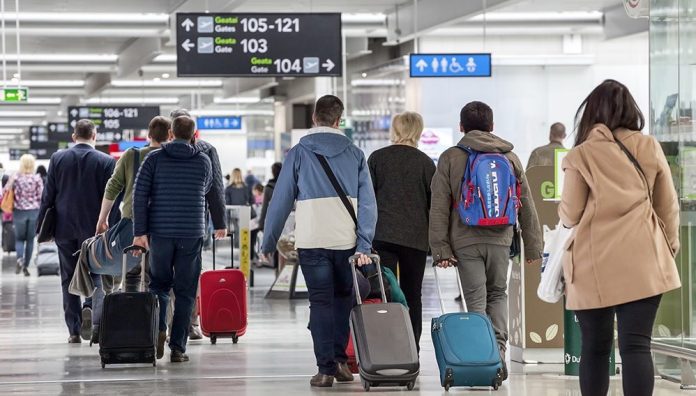US Department of Homeland Security (DHS) will extend the automatic work permit renewal period for spouses of H-1B and L-1 visa holders from 180 days to 540 days. The change will take effect on January 13, 2025 and will apply to applications filed on or after May 4, 2022. It is aimed at preventing work disruptions due to processing delays.
H-1B Visa Holders: US Department of Homeland Security (DHS) will extend the automatic work permit renewal period for spouses of H-1B and L-1 visa holders from 180 days to 540 days. The change will take effect on January 13, 2025, and will apply to applications filed on or after May 4, 2022.
The extension is aimed at preventing work interruptions due to processing delays, a problem reported previously. Spouses of H-1B visa holders (H-4 visas) and spouses of L-1 visa holders (L-2 visas) seeking green cards are eligible for work permits.
Secretary of Homeland Security Alejandro N. Mayorkas said, since January 2021, the US economy has created more than 16 million jobs and the Department of Homeland Security is committed to helping businesses fill them.
Extending the automatic extension period for certain employment authorization documents will help eliminate red tape that burdens employers, ensure that millions of individuals eligible for employment can continue to contribute to our communities, and further strengthen our nation’s strong economy, he said.
USCIS is committed to reducing unnecessary barriers and burdens in the immigration system to support our country’s economy, said USCIS Director Ur M. Jadou.
This final rule will help U.S. employers better retain their employees and prevent workers who file timely EAD renewal applications from experiencing lapses in their employment authorization and employment authorization documentation through no fault of their own, he said.
There is concern that this extension may be withdrawn under a future administration. A previous proposal to revoke H-4 visa work permits was withdrawn in 2021.
This final rule is consistent with USCIS’ ongoing efforts to support eligible individuals’ ability to work and contribute to the U.S. economy. In addition, USCIS has taken several steps to reduce EAD processing times overall and streamline the adjudication process, including-
Reducing the average EAD processing time for individuals with pending applications for adjustment of status by half from fiscal year 2021 to date.
Engaging with communities to educate individuals about work eligibility and providing on-the-ground support for applicants.
Reducing EAD application processing times for asylum applicants and certain parolees to less than or equal to a 30-day average.
Extending the EAD validity period from two years to five years for certain categories of applicants.
Streamlining the processing of refugee EAD applications and expanding online filing of EAD applications for refugees and parolees.

